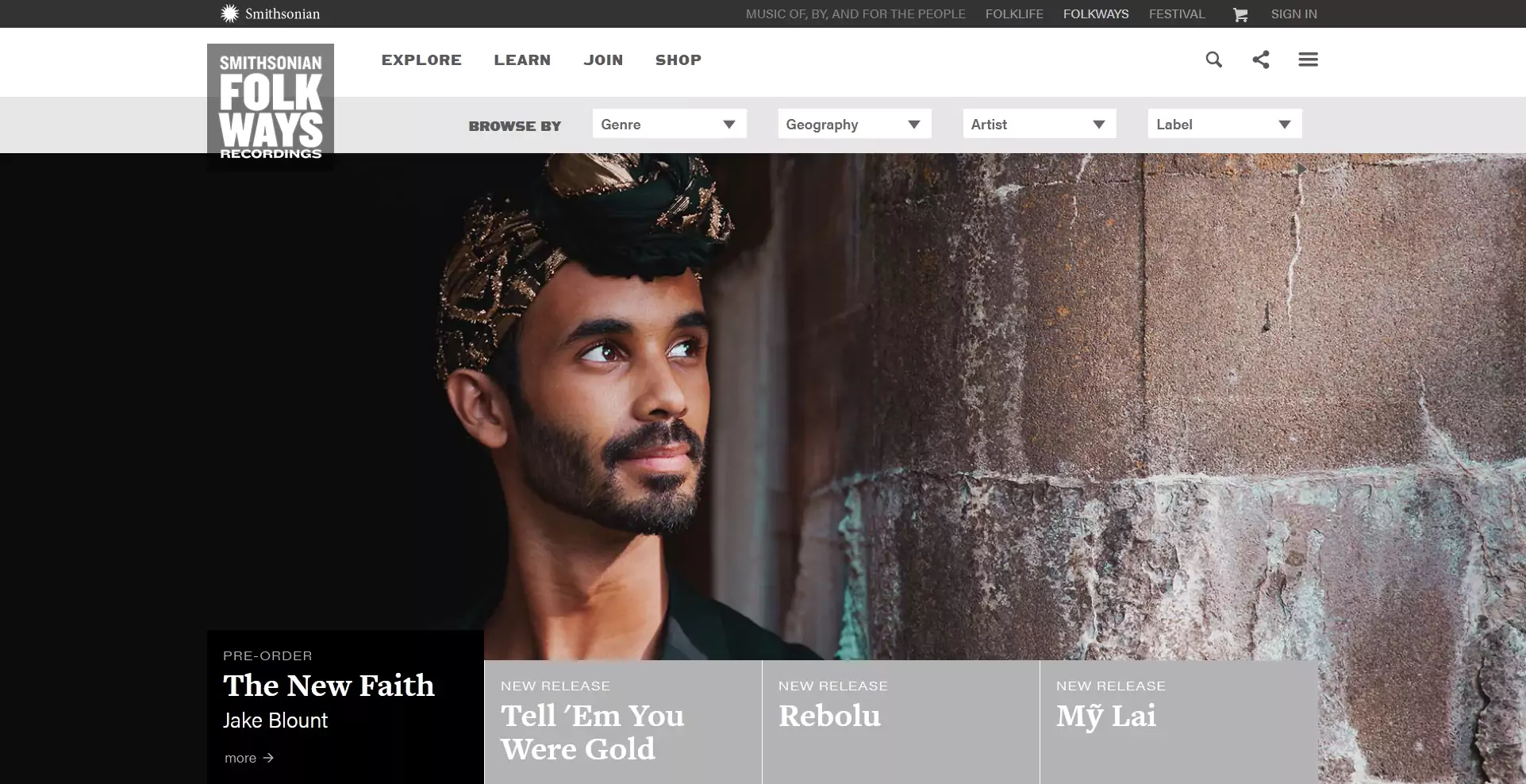Smithsonian Folkways Recordings now upgraded to Orchard Core
If you like music – and, truthfully, who doesn't? –, we have some good news for you: you can now browse and license music on an Orchard Core-based platform! This is brought to you by the long-standing collaboration between Lombiq and the Smithsonian Institution, which has been engaged in a working relationship with us for several years now. The sites of the Smithsonian Center for Folklife and Cultural Heritage were made using Orchard 1, which we had a hand in creating all the way back in 2017. These Orchard-powered sites also include the home of the Smithsonian Folkways Recordings, which is now running on Orchard Core instead!

With Orchard Core offering an ever-growing number of benefits over its predecessor, including various performance improvements and a more user-friendly UI, the time to upgrade from Orchard 1 drew near by the end of 2021. Due to our long history with the Institution, we had the opportunity to participate in this project too.
Lombiq took a major part in the migration process that was ongoing earlier this year. This included updating the existing codebase to modern standards using the latest C# language features, re-implementing our Content Editors module to make it Orchard Core compatible, as well as adding UI testing to easily spot regressions. The application also makes use of several of our open-source projects such as Helpful Libraries, Helpful Extensions, Gulp Extensions, and NPM MSBuild Targets.
The new Folkways site launched in July and can be found on our showcase website Show Orchard as well.
This is what Toby Dodds, Technology Director at Smithsonian Folkways Recordings, had to say regarding our collaboration:
During the past year we’ve had the pleasure of working collaboratively with Lombiq to upgrade our backend CMS from Orchard’s 1.x to its more modern 2.x version Orchard Core – based on Microsoft’s Dot.Net Core. This was a complex and difficult project, but essential as well, and once again we feel lucky to have been able to work through it with Lombiq. Anyone who works around Web or IT systems knows that they are not static and always grow and expand in complexity. Collections of data grow as do the number of fields. Our collection database, which is now 20 years old is at the core of our whole enterprise and represents millions of pieces of information. Years ago, we determined that we could leverage Microsoft technologies and Orchard’s CMS to manage that data while simultaneously supporting our website. This strategy has paid off and we have been able to thrive as a business, generating revenue through sales on our website, licensing opportunities, in-kind donations, and through the distribution of our catalog to outside digital music services. All this business is data-centric and working with Orchard has given us total control of our data landscape.
A big challenge, and a breakthrough, of Orchard Core is that data is accessed in a code-based way which results in better performance but required us to complete a complex migration of our data from our 1.x database held in MS SQL Server. Thankfully Lombiq was ready to take this on, helping us build a data migration process that worked like a charm and was a bridge between the old and the new. We were also able to retain access to our data in SQL, allowing us to keep our existing integrations, and the ability to query our data directly when necessary. Because data is managed within the application layer now, we have also leaned on Lombiq to develop a set of tools to Import, Export, and Update our collection using Excel spreadsheets. Our data life has gotten easier as a result and we are now better prepared to acquire, process, and distribute recordings and collections moving forward. Orchard Core represents not only a step forward for our website but also for our collection management work as well.
Specifically on the website we have also been able to take advantage of Orchard Core’s improved speed to produce new tools for browsing the collection. Being able to browse and filter thousands of releases in a nanosecond is cool, no matter how you slice it. Additionally, this new speed on our website is opening a door for us to introduce a streaming audio player that depends on AJAX to maintain a persistent audio listening experience while browsing the site. This only works well if pages load quickly and do they ever! Getting to streaming is a key priority for us and now we expect to make that available to the public next year.
In summary, this has been an innovative and productive period for Folkways and now that we are in Orchard Core, we are looking forward to all the benefits that will come from this hard-fought upgrade. Our success here is thanks to Lombiq who’ve had the skill, vision, and patience to work with us to overcome big challenges and get the job done.
You can also check out a demo video of the app and our experiences developing it here.
As Orchard Core grows in popularity, so does our experience with it. If you too would like to enjoy the various improvements the platform offers, don't hesitate to reach out to us here.